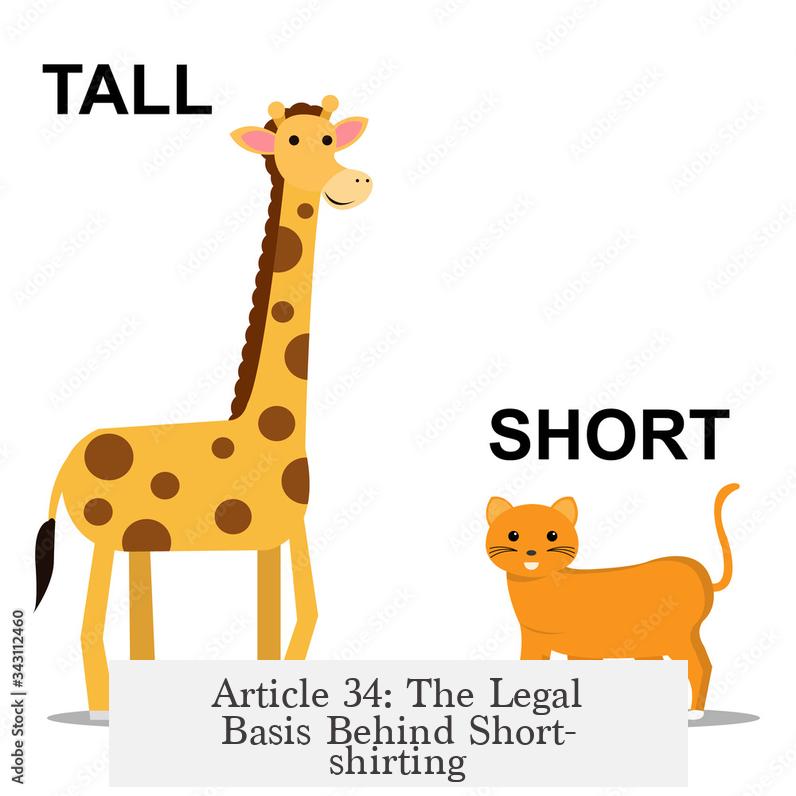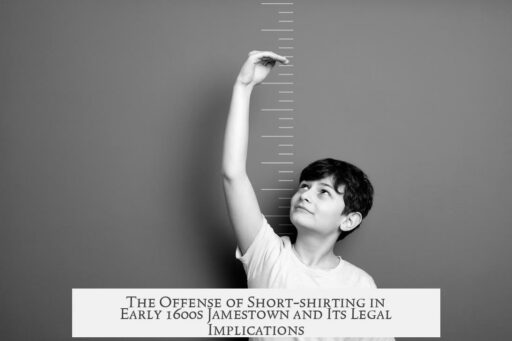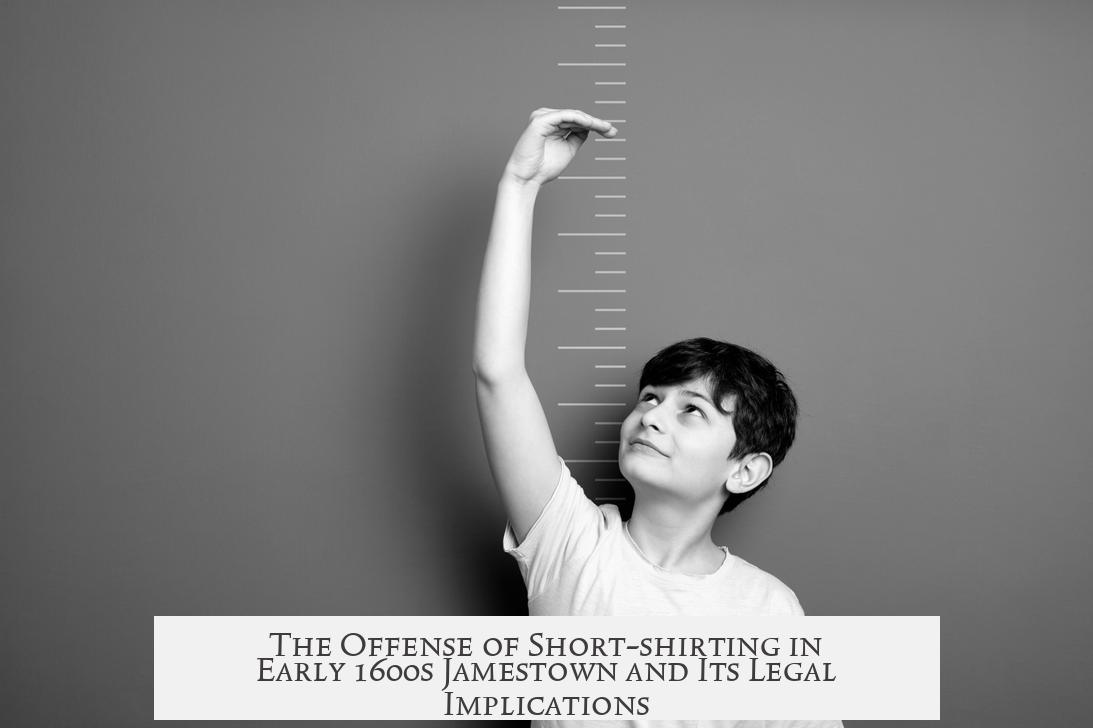“Short-shirting” in early 1600’s Jamestown referred to a specific offense committed mainly by women working as laundresses or seamstresses. It involved stealing, withholding, or adulterating linen materials entrusted to them, particularly by sewing shirts shorter than required due to lack of proper thread or by substituting worse linen. This misconduct violated Jamestown’s strict laws and usually resulted in whipping and imprisonment until restitution.
In Jamestown’s legal framework, the “Lawes Divine, Morall and Martiall” established severe penalties for various offenses. Article 34 specifically addressed the duties and conduct of laundresses and seamstresses. These women were appointed to wash and care for the “foule linnen” of laborers and soldiers. The law forbade them from receiving any payment for their work or from withholding, stealing, or intentionally damaging the garments or linen entrusted to them.
The exact text in Article 34 states that any laundress or laundresse found taking money for washing, stealing linen, or deliberately swapping good linen for damaged or outdated cloth under proof would be whipped and imprisoned until they returned what was taken or made restitution.
“What man or woman soever, Launderer or Laundresse appointed to wash the foule linnen of any one labourer or souldier… shall from said labourer or souldier… either take any thing for washing, or withhold or steale from him any such linnen… or change the same willingly and wittingly, with purpose to give him worse, old and torne linnen for his good… she shall be whipped for the same, and lie in prison till she make restitution.”
Scholarly interpretation of “short-shirting” suggests it was not a formal legal term but a descriptive label for a common violation under Article 34. Various historic accounts and secondary sources illustrate that “short-shirting” involved seamstresses who had to fulfill garment production quotas but lacked sufficient materials. For example, Anne, one laundress/seamstress, was assigned to make multiple shirts but received thread only enough for fewer garments.
When Anne and another worker ran out of thread, they reportedly took thread from existing shirts’ hems and used it to finish the required number of shirts. This action caused some shirts to be unfinished or shorter than they should have been. Consequently, these shirts were defective, both in length and appearance, which was interpreted as theft or mismanagement of materials.
- Anne’s sewing of “short” shirts was viewed as stealing thread and linen.
- The offense violated trust and imposed a tangible loss on the colony or the soldier intended to wear the garments.
- Whipping and imprisonment were standard punishments per Article 34.
Additional sources confirm disputes or controversies about whether such forced sewing conditions were fair or minor offenses. However, the Jamestown legal code was unforgiving, especially on theft or misuse of communal property, which included clothing and linen. Women caught in these acts faced penalties emphasizing restitution and corporal punishment.
| Aspect | Details |
|---|---|
| Offense Name | Short-shirting (informal term) |
| Legal Basis | Article 34 of Lawes Divine, Morall and Martiall |
| Offenders | Laundresses or seamstresses (women) |
| Nature of Offense | Theft, withholding, or damaging linen; making garments too short due to stolen or misused thread |
| Punishment | Whipping and imprisonment until restitution |
Jamestown’s strict laws reflect the early colony’s need to maintain order and resource management under harsh conditions. Linen and garments were vital assets. Misuse risked not only economic loss but also undermined trust within the small community. “Short-shirting” symbolized a breach of this trust by women charged with essential textile duties.
- “Short-shirting” means stealing or mismanaging linen by reducing shirt length through lack of materials.
- It primarily affected laundresses and seamstresses bound to serve soldiers or laborers.
- Article 34 imposed whipping and imprisonment on offenders.
- The offense highlights early colonial challenges in resource control and labor management.
What Was the Offense of “Short-shirting” in the Early 1600’s in Jamestown?

Short-shirting in early 1600’s Jamestown was essentially the offense of sewing shirts too short or inadequately completing them due to the misuse, theft, or mismanagement of linen and thread. This behavior amounted to theft under the colony’s harsh laws and was punishable by whipping and imprisonment until restitution was made.
Let’s unravel this curious and almost comical-sounding offense that actually reveals the strict and pragmatic legal system of one of America’s first English settlements. Here’s a deep dive into what “short-shirting” meant, why it mattered, and how Jamestown’s rigid laws governed daily life — even down to the length of your shirts.
A Quick Look at Jamestown’s Legal Landscape: Lawes Divine, Morall and Martiall

First, the legal backdrop is crucial. Jamestown operated under Lawes Divine, Morall and Martiall, a pamphlet of stringent rules established to maintain order in the struggling colony. Many offenses, including blasphemy, treasonous speech, and theft, carried the death sentence. Yes, death. Other crimes—such as short-shirting—were also taken very seriously, though punishment involved whipping and jail rather than hanging.
- The laws applied differently to men and women, acknowledging some gender distinctions in roles.
- Women’s offenses, like short-shirting, came with corporal punishment and imprisonment until they made things right.
One can imagine the colony’s leaders thought, “If you can’t trust a seamstress to finish a shirt properly, what else can’t you trust them with?”
Article 34: The Legal Basis Behind Short-shirting

The offense of short-shirting ties directly to Article 34, which addresses laundresses and their conduct:
“What man or woman soever, Launderer or Laundresse appointed to wash the foule linnen… who shall… take anything for washing, or withhold or steal any such linen… or change the same willingly… with purpose to give him worse, old and torn linen for his good… she shall be whipped… and lie in prison till restitution.”
In simple terms, if a laundress or seamstress took linen or thread entrusted to her, substituted worn or damaged pieces for fresh ones, or accepted unauthorized payment, she faced harsh consequences. The law ensured that colonial supplies and labor were respected and not wasted.
What Exactly Was “Short-shirting”?

Now for the juicy details. The term “short-shirting” practically begs an image of half-made undershirts or shirts that barely cover your elbows. This linked offense involves sewing shirts either too short or not finishing them fully.
Secondary and tertiary sources provide clues:
- Anne, a seamstress, was once ordered to make 10 shirts but received thread for only 8. To finish her work, she and a colleague “ran out of thread before finishing,” then secretly took thread “from the bottoms of other shirts” to complete the task.
- This led to shirts being shorter than expected—a clear case of garments not matching contract specifications.
- Anne was then accused and whipped for theft under Article 34 because she essentially “stole” thread from the colony’s supply to finish her work.
This scenario reflects how “short-shirting” describes the act of intentionally or negligently making shirts shorter or incompletely because of material shortages, theft, or carelessness.
Why Was Short-shirting a Big Deal?

Consider the context: Jamestown faced constant supply shortages. Every scrap of linen, thread, and garment was precious. Theft or poor workmanship wasn’t just a minor annoyance—it endangered the entire colony’s survival.
Short-shirting wasn’t just about sloppy sewing. It was stealing and mismanaging scarce resources, breaking trust, and potentially leaving soldiers or laborers undersupplied and vulnerable in harsh conditions.
It’s almost humorous by today’s standards, but for the Jamestown leaders, these offenses struck at the heart of order and efficiency.
Practical Lessons from Jamestown’s Short-shirting Offense
What can modern readers learn from this quaint but telling offense?
- Be precise with your work and materials. Even in a small colony, quality and honesty mattered.
- Resource management was key. The illegal taking or damaging of materials had real consequences.
- Trust and accountability were enforced harshly. The community couldn’t afford shirking duties, literal or metaphorical.
Imagine today’s workplaces applying Jamestown-level discipline for unfinished tasks or resource waste. Quite the culture shock!
Conclusion: Short-shirting = Theft via Sewing Gone Wrong
In short, “short-shirting” in early 1600s Jamestown was the offense of sewing shirts too short or not finishing them properly because of stealing or misusing linen and thread. Per Article 34, such misdeeds by a laundress or seamstress led to whipping and imprisonment until restitution.
This offense reveals much about early colonial life—how fragile the system was and how strict rules kept things afloat.
So next time you grumble over a badly hemmed shirt, remember Anne, the Jamestown seamstress, who got whipped for making shirts just a little too short. Talk about tough love for fashion!
Read the full Lawes Divine, Morall and Martiall pamphlet here to dive deeper into Jamestown’s strict legal world.
What does the term “short-shirting” refer to in early Jamestown?
Short-shirting described the offense of sewing shirts too short or incompletely, often due to using insufficient or stolen materials.
Who could be charged with “short-shirting” according to Jamestown laws?
The offender was typically a woman, such as a laundress or seamstress, responsible for handling linen or making shirts.
What law governed the offense of “short-shirting”?
Article 34 of the Lawes Divine, Morall and Martiall covered this offense, forbidding taking payment or stealing linen, or replacing good linen with damaged pieces.
What punishments were imposed for short-shirting?
Punishment included whipping and imprisonment until the offender made restitution for stolen or damaged linen.
How was “short-shirting” linked to theft or mismanagement?
The offense involved stealing thread or linen, or wilfully producing inferior garments by using less material than required, violating trust.




